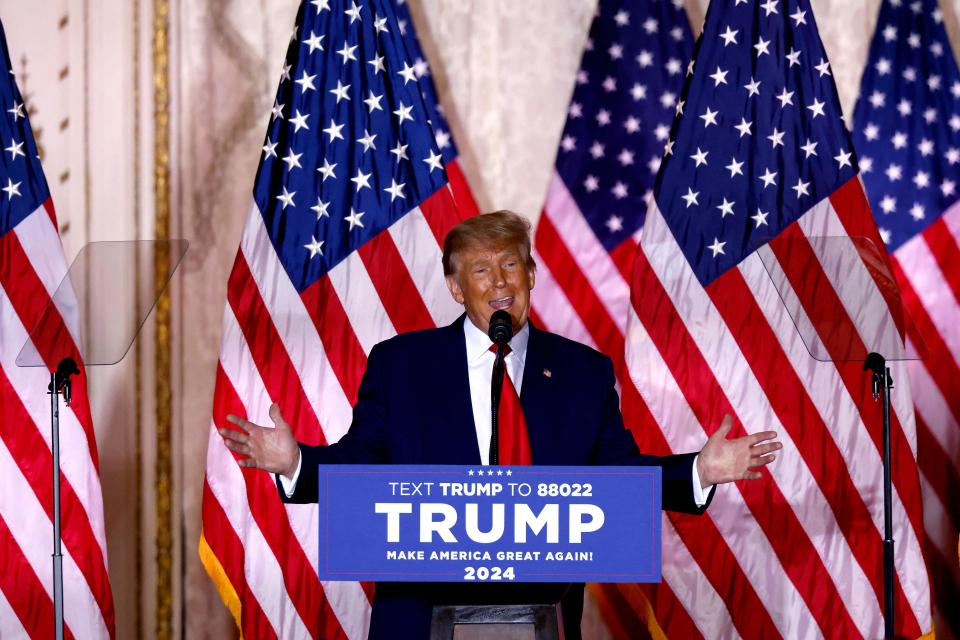'Trump too small'. Supreme Court says jab at Trump can't be trademarked
WASHINGTON – The Supreme Court on Thursday unanimously rejected an attempt to trademark the lewd phrase “Trump too small,” a decision that recognized the government’s long history of setting boundaries on trademarks.
"We see no reason to disturb this longstanding tradition, which supports the restriction of the use of another’s name in a trademark," Justice Clarence Thomas wrote.
The government’s trademark office, which denied the application, had pointed to a law that bars trademarks involving a person’s name without written consent.
But a federal appeals court backed the applicant, California attorney Steve Elster, holding that the law would restrict his freedom of speech and criticism of a public official.

Elster wanted to sell T-shirts with the phrase he said conveys the idea that former President Donald Trump’s “features” and his policies “are diminutive.”
The crude joke harkens back to a personal jab against Trump during the 2016 campaign from Sen. Marco Rubio, R-Fla., then a Republican presidential rival.
Rubio said Trump has disproportionately small hands.
“And you know what they say about men with small hands,” Rubio said, taking a beat before adding: “You can’t trust them.”
Defending himself, Trump said he’s aware of the belief that the size of a man’s hands is related to another part of his anatomy.
"I guarantee you there's no problem" on that front, he said.
Supreme Court didn't probe the deeper meaning of small hands
Without getting into the suggestive meaning of the description during their October oral arguments, the justices observed that there have long been restrictions on trademarks.
Those restrictions don’t prevent the use of the phrase, they noted, even if it can’t be trademarked to significantly limit the ability of competitors to market products with the same words.
But, the court said in its opinion, there's no First Amendment right to piggyback off someone else's name.
The Biden administration backed the trademark office's decision protecting Trump from the insulting trademark.
Trump was not a party in the case, Vidal v. Elster.
Bringing some laughter to the dry world of trademark law
Roy Gutterman, director of the Tully Center for Free Speech at Syracuse University, said the case offered some levity into the dry world of trademark law and rollicking political discourse.
After diving into centuries of intellectual property law, the court said there can be prohibitions on the use of names without violating the First Amendment.
When the case began, Gutterman bought a "Trump Too Small" T-shirt and hung it in his office.
“I suppose under today's decision," he said, "I could now go ahead and make my own without violating Mr. Elster's intellectual property rights."
This article originally appeared on USA TODAY: Supreme Court decision says Trump jab can't be trademarked


